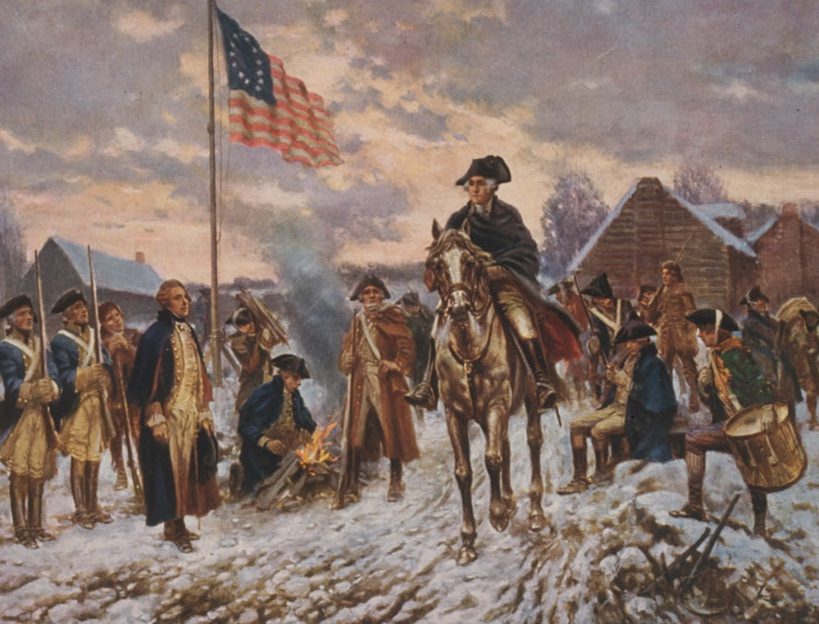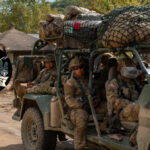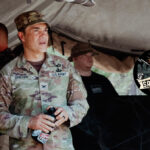
Washington [will] realize early on that he is playing a losing hand and has to change how he plays that hand.
This inaugural episode of the Great Captains series focuses on George Washington from his early career aspirations as a colonel in the British (!) Army to leadership of the American Revolution. Throughout, Washington’s ability to learn from previous failure, understanding of British weaknesses, concern for his troops helped him overcome the uncertainty about the revolution’s success. Len Fullenkamp and Andrew A. Hill discuss this compelling but lesser known side of General George Washington. WAR ROOM podcast editor Jacqueline E. Whitt introduces the episode with a backgrounder on the Great Captains series.
You may also download the podcast here.
Len Fullenkamp is a military historian and retired Professor of National Security Studies from the U.S. Army War College. Andrew A. Hill is editor-in-chief of WAR ROOM. The views expressed in this production are those of the speakers and do not necessarily reflect those of the U.S. Army War College, the U.S. Army, or the Department of Defense.
Image: George Washington on horseback in snow at Valley Forge. By Percy Moran, 1911.
Posts in the “Great Captains” series:
- KNOWING WHEN A WAR IS UNWINNABLE — GENERAL FREDERICK C. WEYAND
(GREAT CAPTAINS) - AN UNBEATEN ROMAN GENERAL: SCIPIO AFRICANUS (GREAT CAPTAINS)
- KNOW THY ENEMY: OSAMA BIN LADEN & RISE OF THE NON-STATE ACTOR (GREAT CAPTAINS)
- GEORGE C. MARSHALL & LEADING THE NATIONAL WAR EFFORT (GREAT CAPTAINS)
- THE PARTNERSHIP OF ROBERT E. LEE AND STONEWALL JACKSON (GREAT CAPTAINS)
- HANNIBAL AND THE MARCH THROUGH THE ALPS (GREAT CAPTAINS)
- WILLIAM T. SHERMAN: THE FIRST ‘MODERN’ GENERAL (GREAT CAPTAINS)
- GEORGE WASHINGTON: THE LESSONS OF FAILURE (GREAT CAPTAINS)
- GREAT CAPTAINS: COMMAND & THOSE WHO DID IT BEST





I have always been impressed at how quickly Washington developed in a short period of time. His professional growth during the French and Indian War was amazing. His early strategic and tactical failures would have doomed many officers (especially if it had been duplicated today), yet Washington survived. Perhaps it was personal courage and willingness to fight that granted him a reprieve or maybe it was his political relationships in Virginia, but in any case he was able to develop his military skills and develop the situational understanding required to strategically defeat the British. His ability to stay the course strategically allowed him to overcome the tactical dificulites that plagued him most of the war.